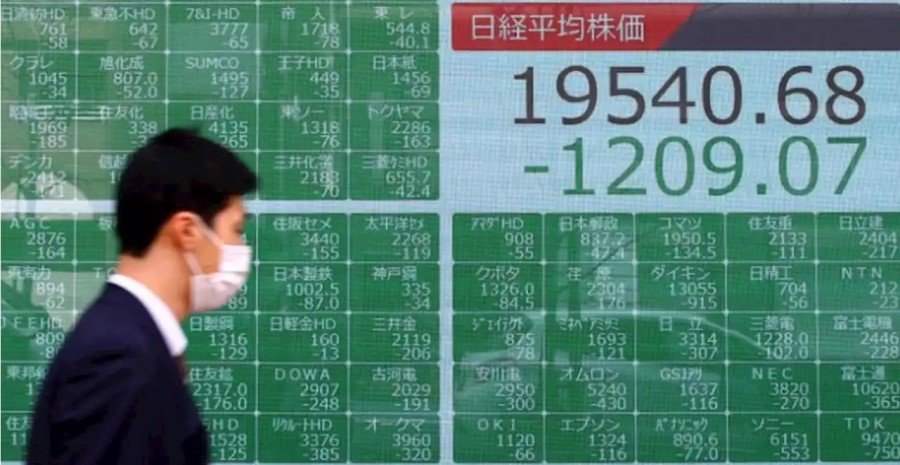
The stock exchange in Japan closed on Monday after a fluctuating trading session. Investors incorporated the additional support measures from the Bank of Japan (BoJ) to mitigate the economic impact of the new coronavirus.
The US central bank announced a surprising new rate cut on Sunday and announced it would restart the bond-buying program to support the largest economy in the world. The central bank of New Zealand also cut interest rates.
The leading Nikkei in Tokyo briefly bounced after the Bank of Japan’s decision but ended up 2.5 percent lower at 17,002.04 points. On Friday, the Japanese main index fell by more than 6 percent to its lowest level since November 2016.
The Japanese central bank announced after an emergency meeting that monetary policy would ease further. For example, the BoJ is going to buy more risky assets like index trackers (ETFs) and corporate bonds to support the markets. The central bank also stated that it would not hesitate to take more stimulus measures.
The other Asian stock markets also showed losses. In China, where the number of contagion cases is levelling off further, the stock market gauge in Shanghai saw 2.4 percent in the meantime.
The Chinese central bank relaxed its policy for banks last Friday to help the economy against the damaging impact of the coronavirus. This move means that banks need to hold fewer capital reserves and can lend more to companies in China affected by the outbreak.
The Hang Seng index in Hong Kong fell 3.6 percent. The Kospi in Seoul lost 2.8 percent. The number of new coronavirus infections has remained stable in South Korea. In the past 24 hours, 74 residents were found to be infected.
The day before, there were 76. The Australian stock market was a negative outlier. The All Ordinaries in Sydney went out with a massive loss of 9.7 percent. Australian banks, in particular, showed significant exchange rate losses.
